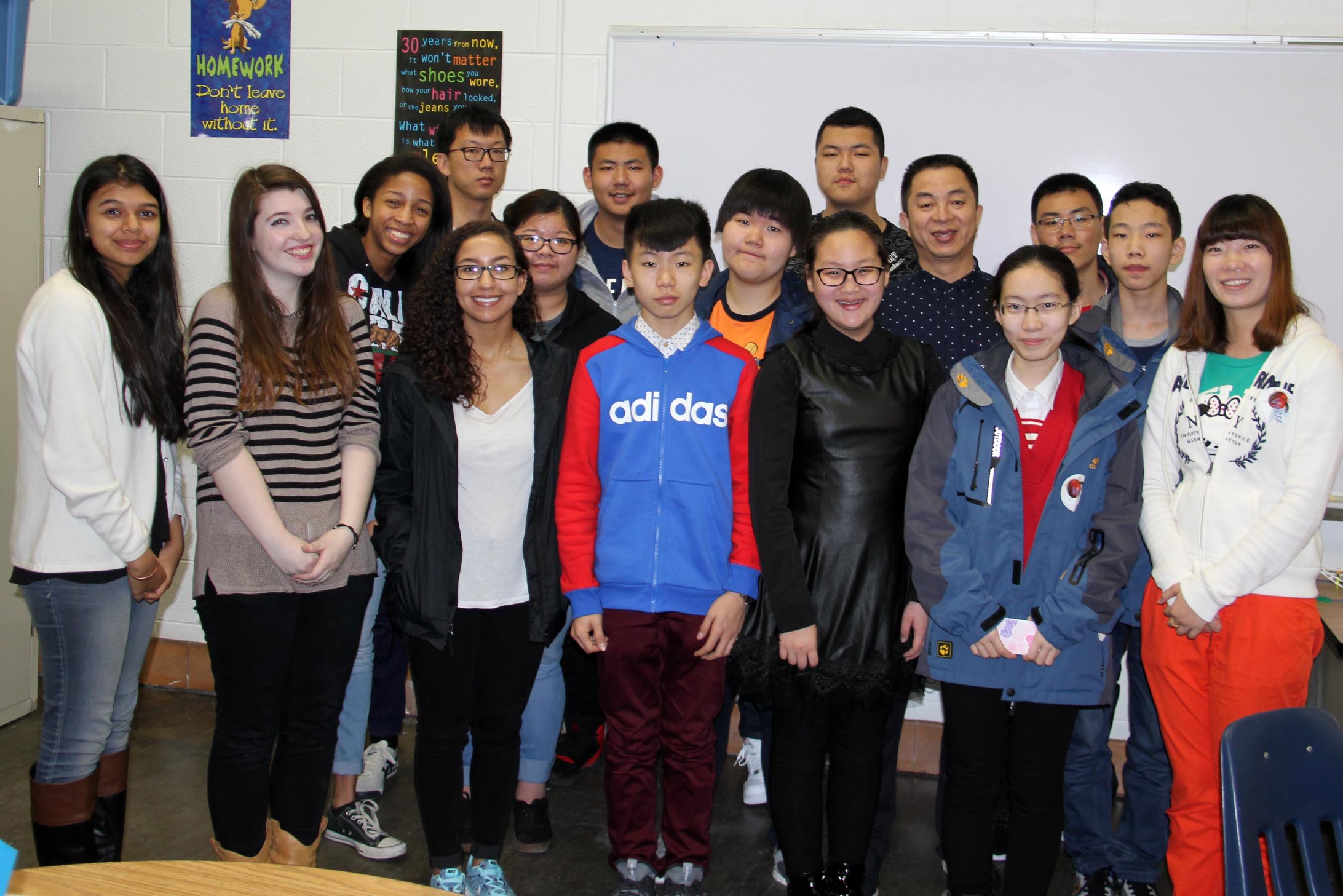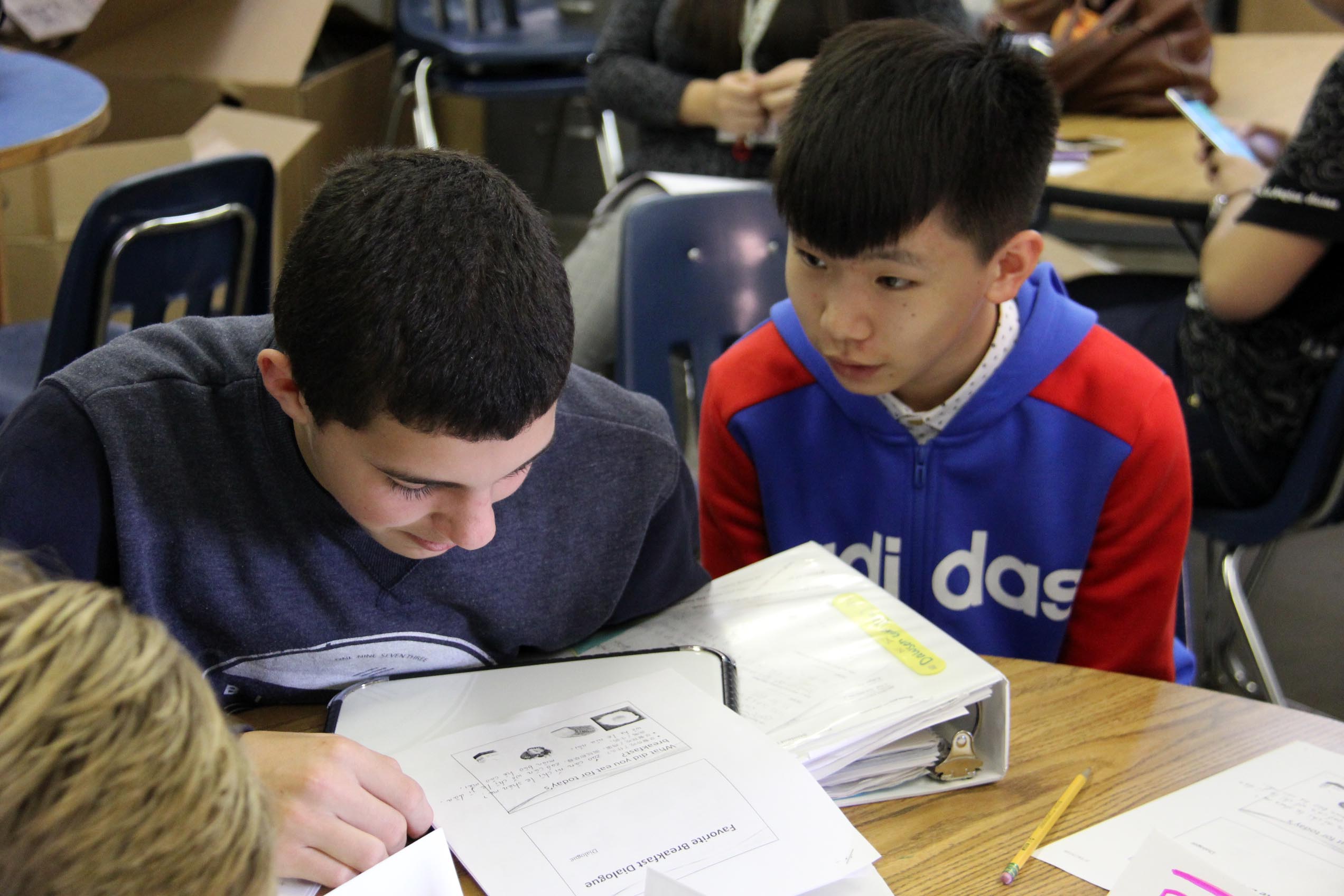It is the first trip to the U.S. for 10 students from Harbin Cambridge No. 3 Middle School in China, and they are eager to learn more about American culture, food and education during their 10-day stay.
However, they gladly took time to answer fourth-graders’ questions about their own culture, food and education while visiting Princess Anne and Landstown elementary schools Feb. 22.
What do you eat for dessert? What does your money look like? Do panda bears live next to your house? What animals do you see? What holidays do you celebrate? Do you really have to always keep quiet when you are in class? How long do you study? Can you play video games?
No, panda bears do not fill the streets in China. Yes, school is very quiet and serious. And, students are allowed to play video games as long as they have good grades.
Visiting American schools is only one activity for these Chinese students as part of their exchange program with the Global Studies and World Language Academy (GSWLA) at Tallwood High School (THS). It is the sixth time the GSWLA has hosted students from Harbin as part of a student exchange program.
 From Feb. 16-26, exchange students will live with THS host families, observe classes at THS and other Virginia Beach schools, visit Virginia Beach attractions and take field trips to Washington, D.C., Williamsburg and Old Dominion University. Eight GSWLA students will travel to China March 22 as part of the exchange.
From Feb. 16-26, exchange students will live with THS host families, observe classes at THS and other Virginia Beach schools, visit Virginia Beach attractions and take field trips to Washington, D.C., Williamsburg and Old Dominion University. Eight GSWLA students will travel to China March 22 as part of the exchange.
“I like American food, history, culture,” said a Harbin middle school student who said to call him “Jake.”
Jake’s favorite food so far is his host family’s apple pie, and he has enjoyed visiting American classes.
“In China there is no talking, no walking. It is very serious,” he said. “American students are friendly. It’s easy to be friends with them. They are kind.”
Jake was the kind one in Yulu Cheng’s exploratory Chinese language class at Princess Anne Middle School (PAMS). He and his fellow exchange students were invited to visit the PAMS foreign language class in between their visits to elementary schools.
As Cheng asked students to recall Chinese vocabulary words for various breakfast foods, Jake slid his chair over to a table of students to prompt their memory and help with pronunciation.
 When asked by PAMS students to stand up and practice their dialogues before speaking in front of the class, some exchange students joined and others took photos with their phones to document the cultural differences.
When asked by PAMS students to stand up and practice their dialogues before speaking in front of the class, some exchange students joined and others took photos with their phones to document the cultural differences.
“This would not happen in a classroom [in China] — how everyone is up and moving around and talking,” observed GSWLA senior Bailey Kelly who traveled to China in 2014 with the exchange program and was with the group visiting PAMS.
“They are really strict over there. The students had to sit down, and I think they always had to have their hands behind their backs,” recalled Kelly. “It was very straightforward learning. Teachers always lectured.”
With a smile, Kelly remembered a play the Chinese students did for her and the other visiting students. “I think that was the most fun they’d had all year,” she said.
Of her GSWLA travels to China, Kelly said she had “a really great experience.” She hopes to study abroad in China during her undergraduate years at Pennsylvania State University where she plans to major in astronomy and astrophysics.
“I liked the immersion,” she explained. “I couldn’t really speak English at my home because my host family couldn’t speak English so I was forced to use the language.”
Xu Longyu, a teacher traveling with the Chinese students who was also observing classroom activities with Kelly and others, explained how the exchange has been helpful to her.
“The customs and teaching methods are quite different here,” noted Longyu. “It’s very strict and serious in China. Students [in America] have more freedom, and they can do what they want. We have a lot that we can learn from Americans. They do a lot in education.”
